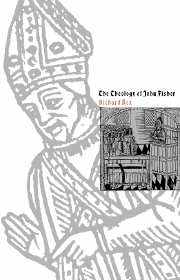Book contents
- Frontmatter
- Contents
- Acknowledgments
- List of abbreviations
- Introduction
- 1 Humanism and scholasticism in late fifteenth – century Cambridge
- 2 The preaching bishop
- 3 Fisher and the Christian humanists, 1500–1520
- 4 The Magdalene controversy
- 5 Fisher and the Catholic campaign against Luther
- 6 Authority
- 7 Faith, grace and justification
- 8 The eucharist
- 9 The inspiration and translation of scripture
- 10 The controversy over Henry VIII's first marriage
- 11 Conclusion
- Appendix John Fisher's library
- Notes
- Bibliography
- Index
3 - Fisher and the Christian humanists, 1500–1520
Published online by Cambridge University Press: 04 November 2009
- Frontmatter
- Contents
- Acknowledgments
- List of abbreviations
- Introduction
- 1 Humanism and scholasticism in late fifteenth – century Cambridge
- 2 The preaching bishop
- 3 Fisher and the Christian humanists, 1500–1520
- 4 The Magdalene controversy
- 5 Fisher and the Catholic campaign against Luther
- 6 Authority
- 7 Faith, grace and justification
- 8 The eucharist
- 9 The inspiration and translation of scripture
- 10 The controversy over Henry VIII's first marriage
- 11 Conclusion
- Appendix John Fisher's library
- Notes
- Bibliography
- Index
Summary
According to the prejudices or predilections of his admirers and critics, John Fisher has been variously relegated or exalted to the intellectual categories of humanism or scholasticism. This diversity in judgments was apparent even during his own lifetime. His friend Erasmus always numbered him among the humanists, the patrons and students of bonae literae. His protégé Robert Wakefield praised his humanist proclivities in the early 1520s; but finding himself ranged against his former patron in the controversy over Henry VIII's marriage to Catherine of Aragon, he discovered a distasteful vein of scholastic pedantry running through Fisher's work. The Lutheran Robert Barnes had no hesitation in dismissing out of hand ‘my Lord of Rochester … and all his Duns men’. As these three examples suggest, such views depend more on the vantage point of the commentator than on the position of their subject. There is more than a grain of truth in all three. It would be nugatory to doubt the sincerity of Fisher's admiration for Erasmus or the enthusiasm of his commitment to bonae literae and the tres linguae (Latin, Greek and Hebrew). His achievements as chancellor of Cambridge University and in the foundation of St John's College bear eloquent witness to this. But it would equally be short-sighted to ignore his high regard for Thomas Aquinas and Duns Scotus, or the scholastic cast of much of his theological writing. The purpose of this chapter is to ascertain how these apparently contradictory allegiances were reconciled in Fisher's mind. It will therefore explore the attitudes to various humanist and scholastic traditions revealed in his official acts, his correspondence and his polemical theology.
- Type
- Chapter
- Information
- The Theology of John Fisher , pp. 50 - 64Publisher: Cambridge University PressPrint publication year: 1991



